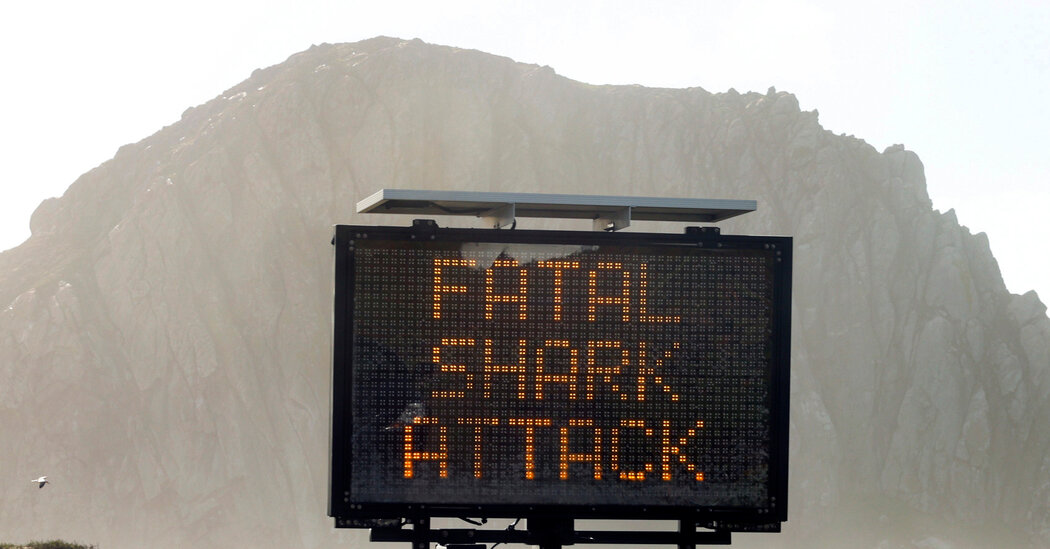
A man who had been on a boogie board off the coast of central California died after he was apparently attacked by a shark near Morro Bay, the authorities said on Friday.
The man, who the authorities did not identify, was found floating and unresponsive off Morro Strand State Beach at about 10:40 a.m. and was pronounced dead at the scene, according to a statement from California State Parks.
If confirmed, the attack would be the first fatal shark attack in the United States in 2021, according to an incident log kept by the Global Shark Attack File, which tracks data on interactions between humans and sharks. The log indicates there have been eight fatal attacks this year worldwide, including three in Australia.
The local authorities have posted shark warning signs within a mile radius of the scene of the attack, as is standard procedure, Adeline Yee, a parks spokeswoman, said in an email late on Friday. Beachgoers are advised to avoid going into the water in that area, near Morro Rock, the landmark volcanic rock that towers over the water, for the next three days, she added.
The exact cause of death was not immediately known and the San Luis Obispo County Coroner’s Office was investigating, the California Parks statement said.
Fatal shark attacks on humans are extremely rare. There were three fatal shark attacks in U.S. waters in 2020: off Bailey Island, Maine; Maui, Hawaii; and near Santa Cruz, Calif. From 2011 to 2020, the United States had just seven fatal shark attacks and 448 nonfatal attacks.
There were 57 unprovoked shark attacks worldwide in 2020 and 39 provoked attacks, resulting in 13 fatalities, according to the International Shark Attack File, another organization that tracks shark data, which is based at the Florida Museum of Natural History at the University of Florida.
Ten of the fatalities were deemed unprovoked, which is above the annual global average of four such fatalities, according to the Florida organization. Annual fluctuations in interactions between sharks and humans are common and long-term trends show a decrease in fatalities, the museum said.
In 2020, surfers and participants in other board sports accounted for 61 percent of shark attacks, the Florida-based shark group stated in its annual report.
“This group spends a large amount of time in the surf zone, an area commonly frequented by sharks, and may unintentionally attract sharks by splashing, paddling and ‘wiping out,’” the report stated.
Swimmers and waders accounted for 26 percent of attacks, while the remaining bites were divided among snorkelers, free divers, body surfers and scuba divers.
The risk of being bitten by a shark remains minuscule, the Florida group said in its report.
“The total number of unprovoked shark bites worldwide is extremely low, given the number of people participating in aquatic recreation each year,” the report stated.
“Fatality rates have been declining for decades, reflecting advances in beach safety, medical treatment and public awareness,” the report continued. “This underscores the importance of global efforts to improve ocean rescue, medical care and shark education.”







